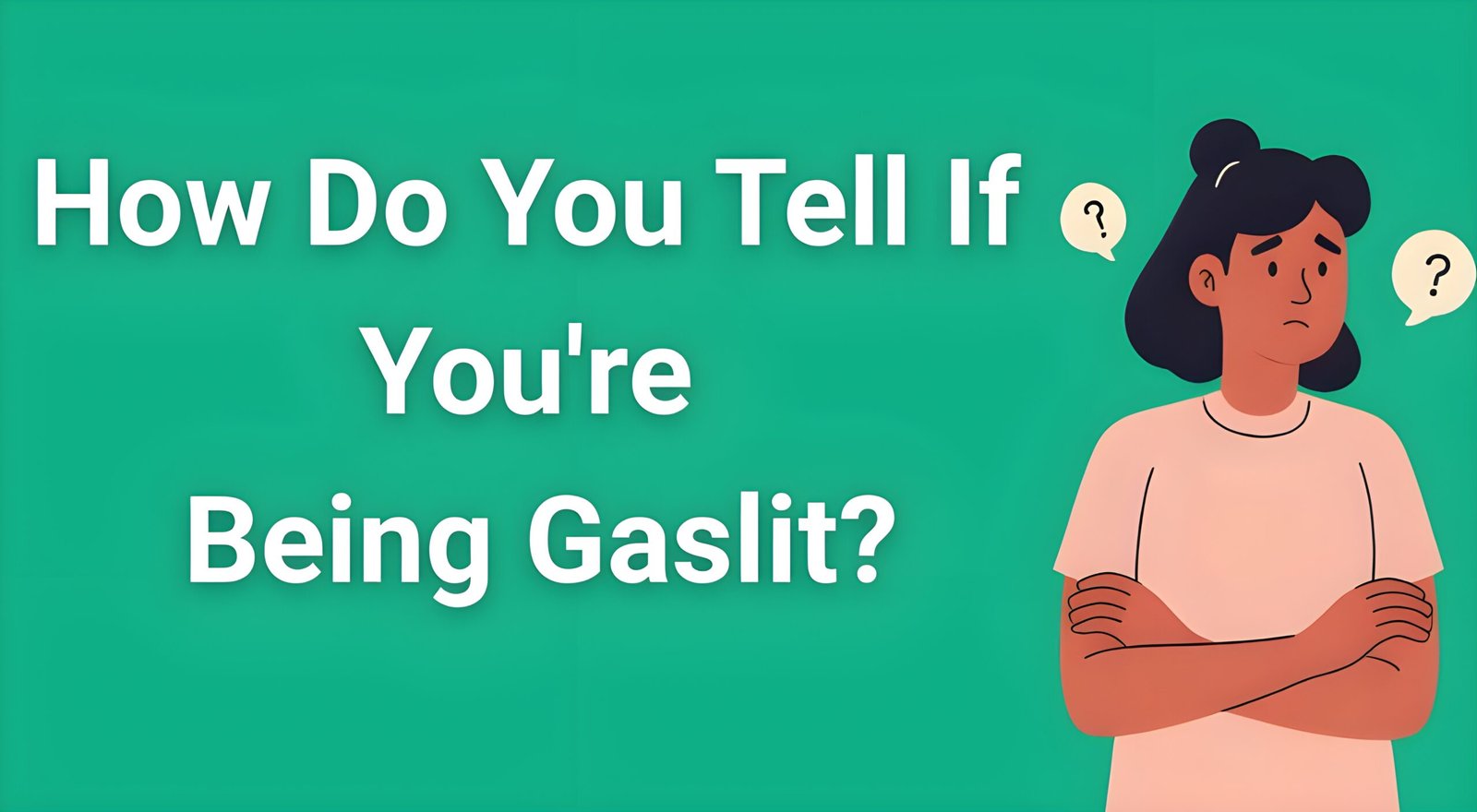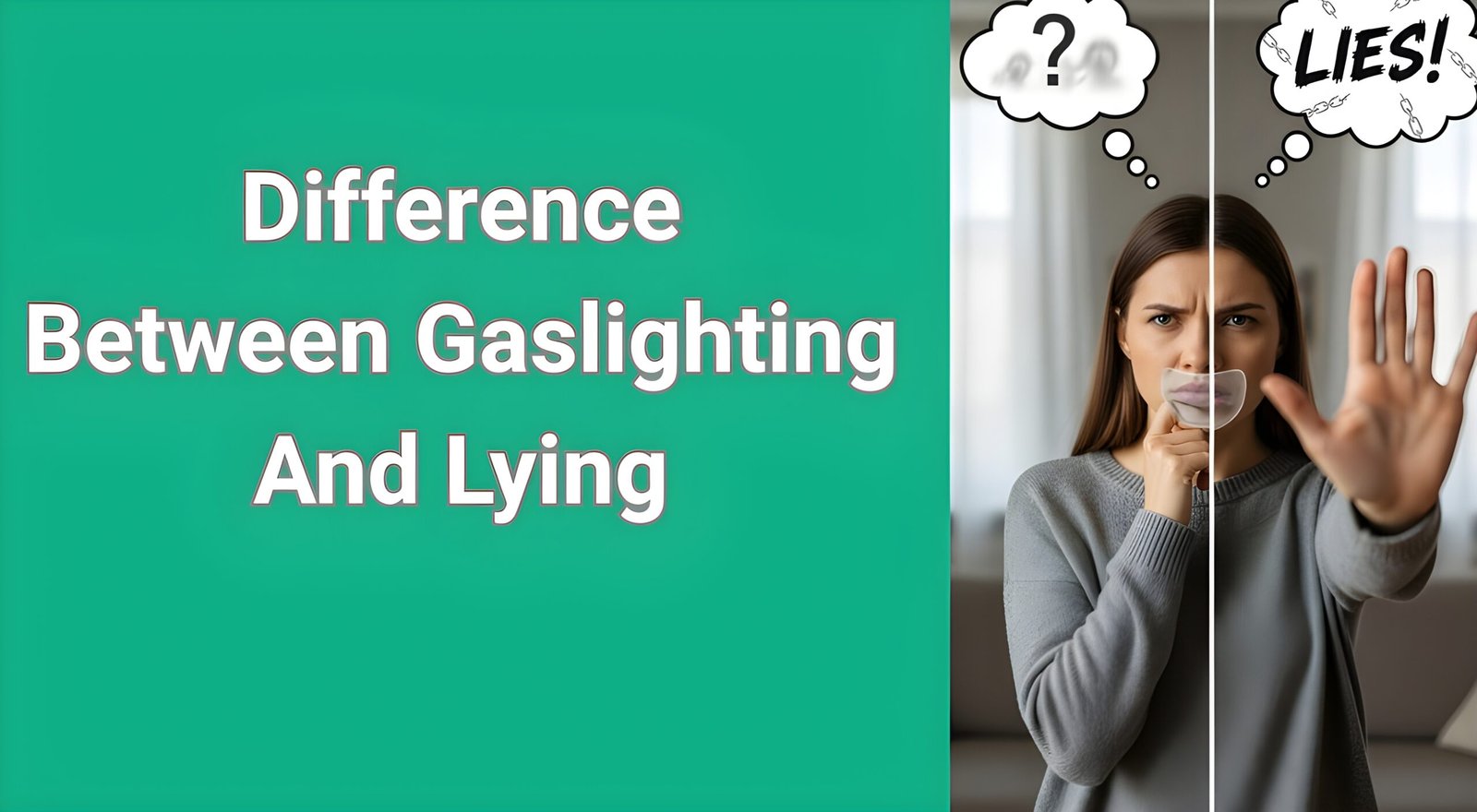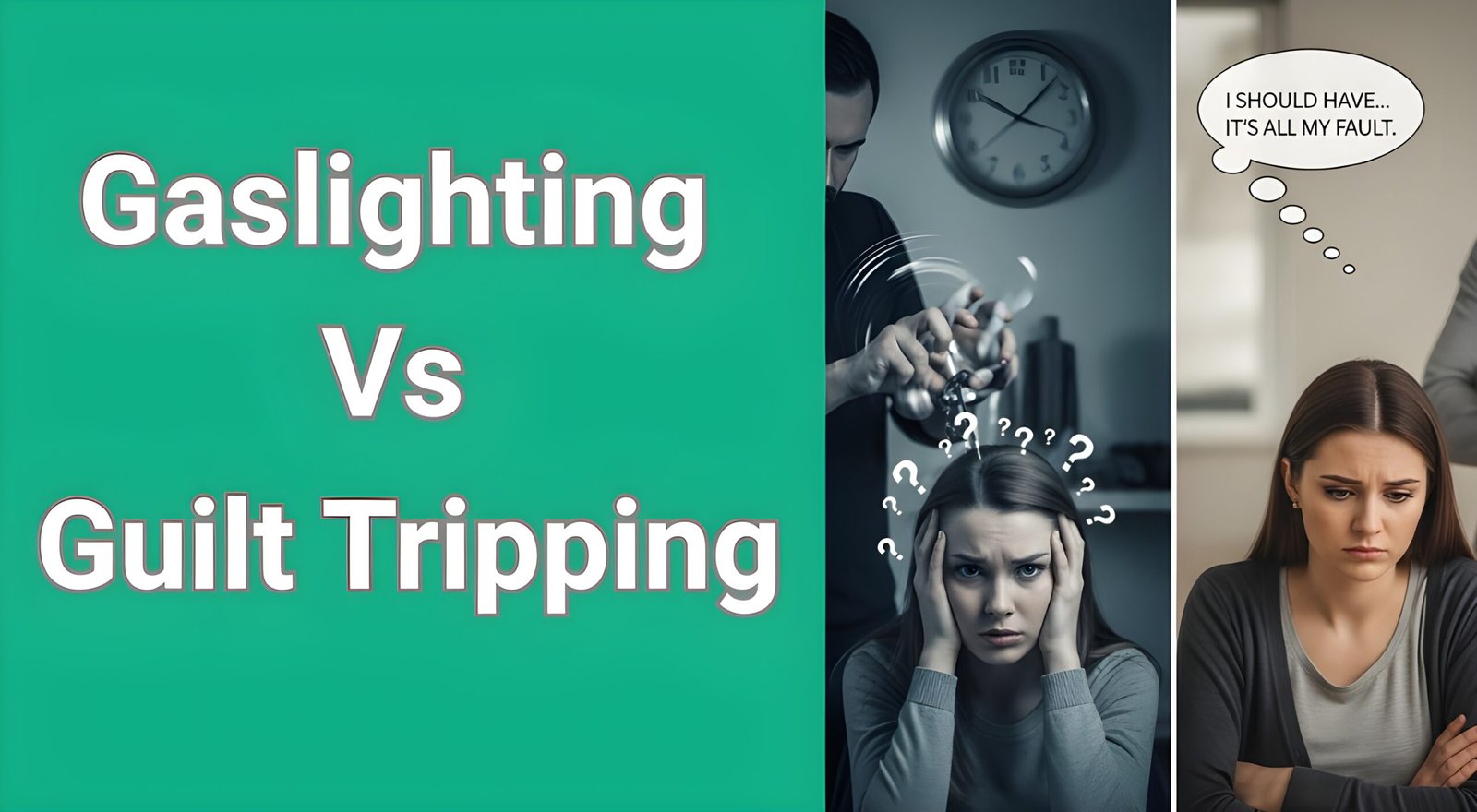That sinking feeling in your stomach when someone insists something never happened, even though you remember it clearly. The constant self-doubt that makes you question your own memories, feelings, and perceptions. If you’re wondering “how do you tell if you’re being gaslit?” – the very fact that you’re asking this question could be your first clue.
- What Is Gaslighting and Why Is It So Hard to Detect?
- 12 Clear Warning Signs You’re Being Gaslit
- The Psychological Impact: Why Gaslighting Is So Damaging
- Types of Gaslighting: How It Shows Up in Different Relationships
- Breaking Free: How to Protect Yourself from Gaslighting
- Understanding the Gaslighter: Why People Engage in This Behavior
- The Recovery Process: What to Expect
- Building Healthy Relationships After Gaslighting
- When Professional Help Is Essential
- Prevention: Protecting Yourself from Future Gaslighting
- Your Path to Recovery and Empowerment
- Frequently Asked Questions
- Conclusion: Reclaiming Your Reality
Gaslighting is one of the most insidious forms of emotional abuse because it attacks your relationship with reality itself. Unlike other forms of manipulation that target your emotions or behavior, gaslighting systematically dismantles your trust in your own mind. Understanding these warning signs isn’t just about identifying abuse – it’s about reclaiming your sanity and protecting your mental health.
What Is Gaslighting and Why Is It So Hard to Detect?
The term “gaslighting” originates from the 1944 film “Gaslight,” where a husband manipulates his wife into believing she’s losing her mind by subtly altering their environment and then denying these changes ever occurred. This psychological manipulation tactic has since been recognized as a serious form of emotional abuse that can occur in any relationship – romantic partnerships, families, friendships, or workplace dynamics.
Gaslighting works by creating a persistent pattern of denial, contradiction, and reality distortion. The abuser doesn’t just lie occasionally – they systematically challenge your perception of events, your emotional responses, and even your memory. This creates a psychological dependency where you begin to rely on the gaslighter’s version of reality because you’ve lost confidence in your own.
The reason gaslighting is so difficult to detect is that it operates like a slow poison. Unlike physical abuse or obvious emotional cruelty, gaslighting often masquerades as concern, protection, or even love. The abuser might say things like “I’m only telling you this because I care” while simultaneously undermining your confidence and autonomy.
12 Clear Warning Signs You’re Being Gaslit
1. You Constantly Second-Guess Your Memory
One of the most telling signs of gaslighting is when you find yourself frequently questioning your own recollection of events. If someone regularly insists that conversations, agreements, or incidents never happened – despite your clear memory of them – this is a red flag.
Example: You remember your partner promising to attend your work event, but when you remind them, they respond with “I never said that. You must be confused again.”
2. Your Feelings Are Consistently Dismissed or Minimized
Gaslighters have a talent for making your legitimate emotional responses seem unreasonable or excessive. They use phrases like “you’re too sensitive,” “you’re overreacting,” or “you’re being dramatic” to invalidate your feelings and make you question whether your emotional responses are appropriate.
This dismissal serves a dual purpose: it prevents them from taking responsibility for their behavior while simultaneously making you doubt your emotional intelligence and intuition.
3. You Find Yourself Apologizing Constantly
When you’re being gaslit, you often end up apologizing for things that aren’t your fault – or for having feelings at all. The gaslighter creates an environment where you feel responsible for their emotional state, their reactions, and even their poor behavior toward you.
You might catch yourself saying “I’m sorry” multiple times a day, even when you’ve done nothing wrong. This excessive apologizing is your psyche’s attempt to restore peace in a relationship where you’re constantly being told you’re the problem.
4. They Deny Things You Know Happened
Perhaps the most direct form of gaslighting is outright denial of events, conversations, or behaviors. The gaslighter will look you straight in the eye and insist that something you witnessed or experienced never occurred. This isn’t simple forgetfulness – it’s a deliberate attempt to make you question your own perception of reality.
This denial often escalates to claiming that you’re “making things up” or “imagining things,” which can be particularly devastating to your self-confidence.
5. You Feel Like You’re “Walking on Eggshells”
Gaslighting creates an atmosphere of unpredictability where you never know what might trigger a negative reaction. You find yourself carefully monitoring your words, behavior, and even facial expressions to avoid setting off the other person.
This hypervigilance is exhausting and prevents you from being authentic in the relationship. You lose touch with your natural responses and genuine personality because you’re constantly in survival mode.
6. Your Reality Is Rewritten with “Alternative Facts”
Gaslighters are skilled at reframing situations to paint themselves as the victim or the hero. They’ll take an incident where they behaved poorly and retell it in a way that makes their actions seem justified or even admirable.
For instance, if they yelled at you in public, they might later claim they were “protecting you” from embarrassment or “trying to help you understand” an important point.
7. You’re Isolated from Your Support Network
Emotional abusers often work to separate their victims from friends, family, and other sources of external validation. They might criticize your loved ones, create conflicts that drive wedges between relationships, or gradually monopolize your time and attention.
This isolation serves multiple purposes: it eliminates outside perspectives that might challenge the gaslighter’s narrative, and it makes you more dependent on them for social connection and validation.
8. You Question Your Own Sanity
The cumulative effect of gaslighting is that you begin to doubt your fundamental ability to perceive and interpret reality accurately. You might find yourself thinking thoughts like “Am I crazy?” or “Maybe I really am losing my mind.”
This self-doubt is precisely what the gaslighter wants to achieve – once you no longer trust your own judgment, you become completely dependent on their version of events.
9. Their Words and Actions Never Align
Gaslighters are masters of saying exactly what you need to hear while continuing to behave in hurtful ways. They might apologize profusely, make grand promises of change, or express deep remorse – but their actions remain unchanged.
When you point out this inconsistency, they’ll often gaslight you about their promises themselves, claiming they never made such commitments or that you misunderstood what they meant.
10. You Make Excuses for Their Behavior to Others
When friends or family members express concern about how you’re being treated, you find yourself defending the gaslighter or making excuses for their behavior. You might rationalize their actions with explanations like “they’re just stressed” or “they don’t mean it.”
This defense mechanism develops because acknowledging the abuse would mean confronting the reality of your situation, which can feel overwhelming when you’re already struggling with self-doubt.
11. You Feel Confused and Off-Balance Most of the Time
Gaslighting creates a persistent state of cognitive dissonance – the uncomfortable mental state that occurs when your experiences don’t match what you’re being told. This results in chronic confusion, difficulty making decisions, and a general sense of being mentally “foggy.”
You might find it hard to concentrate, struggle with memory issues, or feel like you’re losing your mental sharpness. These symptoms often persist even when you’re away from the gaslighter because the psychological impact runs so deep.
12. Your Gut Instinct Says Something Is Wrong
Despite all the confusion and self-doubt, there’s usually a part of you that knows something isn’t right. You might have a persistent feeling that you’re being manipulated, even if you can’t quite put your finger on why.
Trust this instinct. Your intuition is often the last defense against gaslighting because it operates below the level of conscious thought where the gaslighter’s manipulations take place. Many people confused guilt tripping with gaslighting but both are different.
The Psychological Impact: Why Gaslighting Is So Damaging
Understanding how gaslighting affects your mental health helps explain why recovery often requires professional support and structured approaches. The trauma of gaslighting goes beyond the immediate relationship – it fundamentally alters your relationship with reality itself.
When someone systematically undermines your perception and memory, it creates what psychologists call “learned helplessness.” You begin to believe that you’re incapable of accurately assessing situations, making good decisions, or trusting your own judgment. This learned helplessness can persist long after the gaslighting relationship ends.
The neurological impact is equally significant. Chronic stress from gaslighting affects brain function, particularly in areas responsible for memory, decision-making, and emotional regulation. This is why many gaslighting survivors report difficulty concentrating, memory problems, and emotional volatility during and after their abusive experiences.
Many survivors describe feeling like they need to “relearn” how to trust themselves. This process often involves recognizing that the intense emotional confusion they experienced wasn’t a character flaw or mental illness – it was a normal response to an abnormal situation.
Types of Gaslighting: How It Shows Up in Different Relationships
Romantic Relationships
In intimate partnerships, gaslighting often revolves around control and power dynamics. The abuser might use your love and commitment against you, making statements like “if you really loved me, you wouldn’t question me” or “I’m the only one who truly understands you.”
Sexual gaslighting is particularly damaging, where the abuser might deny your sexual boundaries, insist you enjoyed something you didn’t, or claim that your discomfort is prudish or abnormal.
Family Dynamics
Family gaslighting can be especially complex because it often involves multiple family members and may have been present since childhood. Parents who gaslight their children teach them not to trust their own perceptions from an early age, creating lasting impacts on self-confidence and relationship patterns.
Adult children of narcissistic parents often struggle to identify gaslighting because the patterns feel “normal” – they’ve never known a different way of relating.
Workplace Gaslighting
Professional gaslighting might involve a supervisor who takes credit for your work while claiming you’re incompetent, or colleagues who isolate you and then insist you’re “not a team player.” This type of abuse can be particularly insidious because it affects your livelihood and professional reputation.
The power imbalance in workplace relationships makes it difficult to challenge gaslighting behavior, especially when the abuser is in a position of authority.
Medical Gaslighting
Healthcare providers sometimes engage in gaslighting by dismissing symptoms, particularly those experienced by women, minorities, or patients with mental health histories. They might suggest that symptoms are “all in your head” or imply that you’re exaggerating pain for attention.
Medical gaslighting can have serious health consequences when legitimate medical concerns are dismissed or minimized.
Breaking Free: How to Protect Yourself from Gaslighting
Document Everything
Start keeping a private journal of conversations, incidents, and your emotional responses. This serves two purposes: it provides you with an objective record to refer back to, and it helps you recognize patterns of manipulation that might not be obvious in isolated incidents.
Use specific dates, times, and direct quotes when possible. Store this documentation somewhere safe where the gaslighter cannot access it.
Seek External Validation
Reach out to trusted friends, family members, or professionals who can provide perspective on your experiences. Gaslighters often try to isolate their victims specifically to prevent this type of external validation.
If you’re struggling to identify whether your experiences constitute gaslighting, consider seeking a professional assessment. Sometimes an objective analysis from someone trained in recognizing abuse patterns can provide the clarity you need to move forward.
Set and Maintain Boundaries
Establish clear boundaries about what behavior you will and won’t accept. More importantly, follow through with consequences when those boundaries are violated. Gaslighters often test boundaries repeatedly to see if you’ll actually enforce them.
Practice phrases like “I’m not willing to discuss this when you’re yelling” or “I need time to think about this conversation before responding.”
Rebuild Your Relationship with Reality
Recovery from gaslighting often involves relearning to trust your own perceptions and judgment. This might mean starting with small decisions and gradually building confidence in your ability to assess situations accurately.
Professional support can be invaluable during this process. Trauma-informed therapy specifically designed for abuse survivors can help you process the experience and develop healthy coping strategies.
For those dealing with the complex psychological aftermath of gaslighting, structured recovery programs can provide the specific tools needed to break free from these patterns. The neurological addiction-like bonds created by abuse cycles often require specialized approaches that address both the psychological and physiological aspects of trauma recovery.
Develop an Exit Strategy
If you’re in an actively abusive situation, safety planning is crucial. Gaslighting rarely occurs in isolation – it’s often part of a broader pattern of emotional or psychological abuse that can escalate.
Consider reaching out to domestic violence resources, even if the abuse isn’t physical. Many organizations now recognize emotional abuse as equally serious and can help with safety planning, legal resources, and therapeutic support.
Understanding the Gaslighter: Why People Engage in This Behavior
While understanding the psychology behind gaslighting doesn’t excuse the behavior, it can help you recognize that the abuse isn’t about you or anything you’ve done wrong. People who gaslight others often have deep-seated issues with control, empathy, and their own relationship with reality.
Some gaslighters learned these patterns in their own families of origin and genuinely don’t recognize that their behavior is abusive. Others are more calculating and deliberately use gaslighting as a tool to maintain power and control over others.
Narcissistic personality traits often underlie gaslighting behavior. The gaslighter’s need to be right, to maintain their superior position, and to avoid accountability drives them to distort reality rather than face their own shortcomings.
However, it’s important to remember that understanding the reasons behind gaslighting doesn’t mean you should stay in an abusive situation hoping to “fix” the other person. Change requires acknowledgment of the problem and genuine commitment to different behavior – qualities that gaslighters rarely possess.
The Recovery Process: What to Expect
Recovery from gaslighting is rarely linear. You might have moments of clarity followed by periods of doubt and confusion. This is normal and doesn’t mean you’re not making progress.
Many survivors describe the recovery process as “remembering who they were” before the gaslighting began. This involves reconnecting with your own values, preferences, and instincts that may have been suppressed or ignored during the abusive relationship.
Trauma bonding is a common complication in gaslighting relationships. The intermittent reinforcement pattern of cruelty followed by kindness creates powerful psychological bonds that can make leaving feel impossible, even when you intellectually understand the relationship is harmful.
These bonds operate on a neurological level, similar to addiction, which is why willpower alone is often insufficient for breaking free. Specialized approaches that address the brain’s reward and stress response systems can be particularly effective for overcoming trauma bonds.
Professional support during recovery often includes trauma-informed therapy, support groups, and sometimes medical intervention to address the anxiety, depression, or PTSD symptoms that frequently accompany gaslighting abuse.
Building Healthy Relationships After Gaslighting
Once you’ve recognized and escaped gaslighting, the work of building healthy relationships begins. This process involves learning to trust your judgment again while also developing the skills to recognize red flags early in new relationships.
Healthy relationships are characterized by mutual respect, open communication, and the freedom to express your authentic thoughts and feelings without fear of retaliation or manipulation. Partners in healthy relationships encourage your independence, support your goals, and respect your boundaries.
Learning to advocate for yourself effectively is a crucial skill in preventing future gaslighting. This means speaking up when something doesn’t feel right, asking clarifying questions when you’re confused, and refusing to accept explanations that don’t align with your experience.
When Professional Help Is Essential
While self-help strategies and support from loved ones are valuable, professional intervention is often necessary for full recovery from gaslighting abuse. Consider seeking professional help if you experience:
- Persistent anxiety, depression, or PTSD symptoms
- Difficulty making decisions or trusting your judgment
- Problems concentrating or memory issues
- Thoughts of self-harm or suicide
- Inability to function normally in daily life
- Ongoing confusion about reality or your experiences
Trauma-informed therapists who specialize in abuse recovery understand the unique challenges of gaslighting and can provide specialized treatment approaches. Group therapy with other survivors can also be particularly healing, as it provides validation and reduces the isolation that gaslighting creates.
For those seeking immediate clarity about their situation, professional assessment services can help you understand exactly what you’re experiencing and develop a personalized plan for moving forward. Getting expert analysis of your specific situation can provide the validation and direction needed to begin healing.
Prevention: Protecting Yourself from Future Gaslighting
Understanding the early warning signs of gaslighting can help you protect yourself from future abuse. Pay attention to people who:
- Frequently contradict your memory of events
- Dismiss your feelings or concerns as invalid
- Try to isolate you from friends and family
- Make you feel like you need their permission to have feelings
- Use your love or loyalty against you as a manipulation tool
Trust your instincts if something feels off in a relationship. Gaslighting often starts subtly and escalates over time, so early intervention is key.
Maintain strong connections with trusted friends and family who can provide perspective and support. Having a solid support network makes it much harder for gaslighters to successfully isolate and manipulate you.
Continue developing your own sense of self-worth and identity independent of any relationship. People with strong self-esteem and clear personal boundaries are less vulnerable to gaslighting attempts.
Your Path to Recovery and Empowerment
Recognizing that you’re being gaslit is often the first and most difficult step in the recovery process. The very nature of gaslighting makes victims doubt their perceptions, so acknowledging the abuse requires tremendous courage and strength.
Remember that healing is possible. Thousands of people have successfully recovered from gaslighting abuse and gone on to build healthy, fulfilling relationships. The confusion, self-doubt, and emotional pain you’re experiencing are symptoms of abuse, not character flaws or personal weaknesses.
Your journey to recovery might include professional therapy, support groups, and possibly legal intervention if the gaslighting occurs in a domestic violence context. The specific path will depend on your individual situation and needs.
Recovery also involves grieving – not just for the relationship you’re leaving, but for the person you were before the gaslighting began. It’s normal to feel angry, sad, confused, and even relieved all at the same time. These complex emotions are part of the healing process.
As you rebuild your relationship with reality and learn to trust yourself again, you’ll likely discover strengths and insights you didn’t know you possessed. Many survivors describe feeling more self-aware, empathetic, and resilient after recovery than they ever did before the abuse.
The skills you develop in recognizing and resisting manipulation will serve you well in all areas of life. You’ll become better at setting boundaries, advocating for yourself, and building authentic relationships based on mutual respect rather than power and control.
Frequently Asked Questions
Q: Can someone gaslight without realizing they’re doing it?
A: While some gaslighting behaviors might stem from learned patterns rather than malicious intent, the systematic nature of gaslighting typically indicates some level of awareness. Regardless of intent, the impact on victims is the same and requires intervention.
Q: How long does it take to recover from gaslighting?
A: Recovery time varies depending on the duration and severity of the gaslighting, individual resilience factors, and access to professional support. Some people begin feeling clearer within weeks, while others may need months or years of therapeutic work.
Q: Can gaslighting happen in friendships?
A: Yes, gaslighting can occur in any relationship where there’s an imbalance of power or where one person seeks to control another. Friendships, family relationships, and workplace dynamics can all involve gaslighting patterns.
Q: Is it possible to gaslight someone accidentally?
A: While isolated incidents of memory differences or miscommunication aren’t gaslighting, consistent patterns of reality distortion typically indicate intentional manipulation. True gaslighting involves systematic efforts to undermine someone’s perception of reality.
Q: How do I know if I’m gaslighting someone else?
A: If you frequently find yourself denying things you said or did, minimizing others’ feelings, or trying to convince someone their memory is wrong, you might be engaging in gaslighting behaviors. Self-reflection and possibly therapy can help identify and change these patterns.
Q: Should I confront someone who’s gaslighting me?
A: Direct confrontation rarely works with gaslighters and often escalates the manipulation. Focus instead on protecting yourself, seeking support, and developing an exit strategy if necessary.
Conclusion: Reclaiming Your Reality
Learning how to tell if you’re being gaslit is about more than identifying abuse – it’s about reclaiming your fundamental right to trust your own perceptions and experiences. The journey from confusion and self-doubt to clarity and self-confidence isn’t always easy, but it’s absolutely possible.
Your experiences are valid. Your feelings matter. Your perception of reality deserves respect. These truths might feel foreign after enduring gaslighting, but they represent the foundation upon which your recovery will be built.
Remember that seeking help isn’t a sign of weakness – it’s an act of courage and self-preservation. Whether through professional therapy, support groups, or trusted friends and family, you don’t have to navigate this journey alone.
The confusion and pain you’re experiencing right now aren’t permanent. With proper support and intervention, you can rebuild your relationship with reality, develop healthy relationships, and create the authentic, fulfilling life you deserve.
Trust yourself. You know more than you think you do, and your instincts are more reliable than anyone has led you to believe. The path forward begins with honoring your own experience and taking the first step toward healing.





